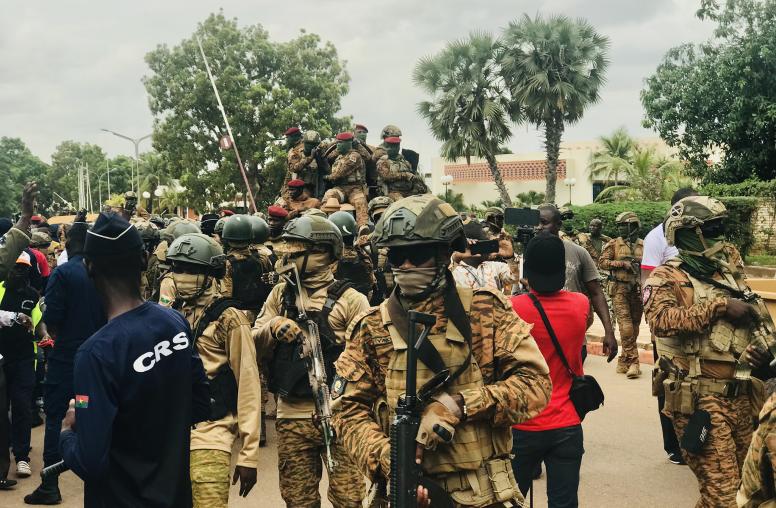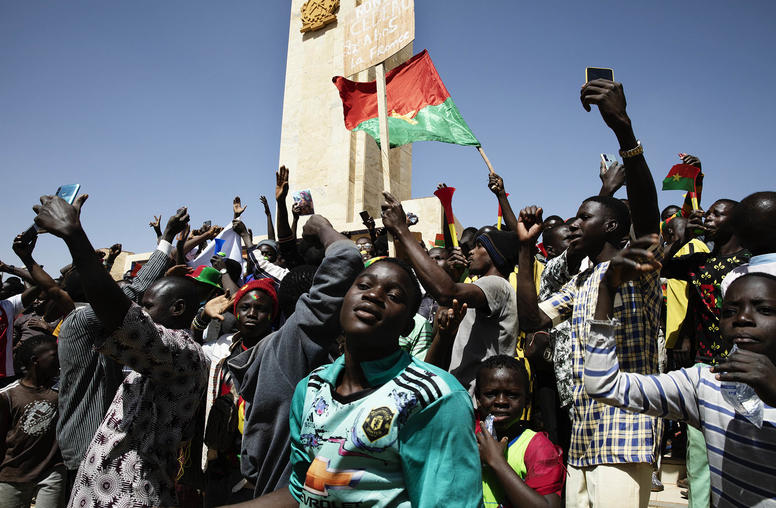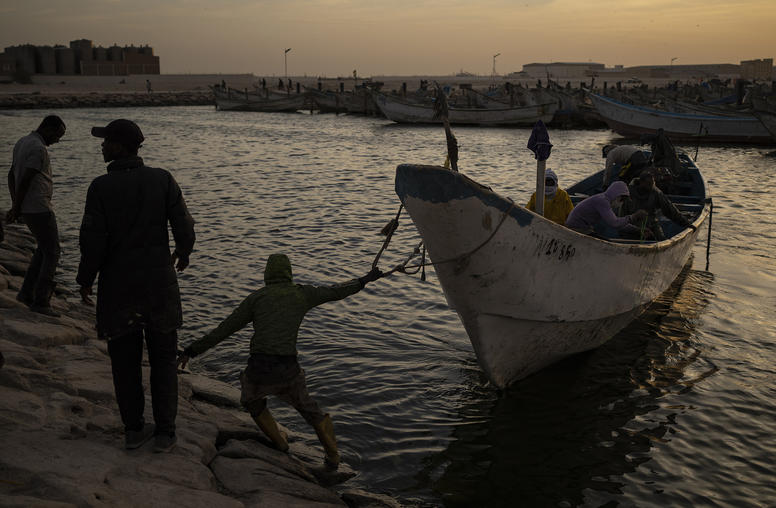Q&A: The Siege in Mali
On the Issues With Emily Fornof
As militant gunmen seize a hotel in the capital of the West African state of Mali, U.S. Institute of Peace Program Specialist Emily Fornof offers context for the incident. Fornof served as a Peace Corps volunteer in Mali, and is conducting graduate research on the country’s conflicts at George Mason University.

Why has this attack happened in Mali?
Unfortunately this is not a unique event; it’s the most recent manifestation of the ongoing conflict that has been running for nearly four years in Mali. In 2011 and 2012, a group comprised largely of ethnic Tuareg and Arabs revived their campaign for greater autonomy in northern Mali. They teamed up with Islamist extremist groups, most notably al-Qaeda in the Islamic Maghreb (AQIM), and these combined forces took over the country’s north. Army officers complained that they were not getting enough resources from the democratically elected government, and they seized power in a coup in 2012. Instability in the capital proved to be the opportunity the extremists were looking for; although the Tuareg and Arab groups were satisfied with the territory they had captured, extremists continued to push south into central Mali. At the request of a transitional government, French military intervened in 2013 and forced the extremists back into the far north. A United Nations peacekeeping force then deployed to assist the country through a peace process.
The Malian government and a coalition of Tuareg and Arab groups signed a peace deal after a shaky ceasefire , but AQIM and other extremist groups did not participate in the talks and have continued attacks that resemble today’s seizure of the Radisson Blu Hotel in Bamako. Most attacks in the past year have targeted the U.N. forces, though some of these attacks also come from pro-government militias unhappy with the U.N.’s performance. An AQIM splinter group called al-Mourabitoun claimed responsibility for an attack on a bar in Bamako, a popular hangout for European and U.N. security people, back in March, as well as for a similar attack on Hotel Byblos in Sevare in August. Now al-Mourabitoun has said it carried out today’s attack.
So what do we know about al-Mourabitoun? Is it indeed likely to have committed this attack?
We don’t have enough specific information yet on today’s attack, but al-Mourabitoun has repeatedly claimed similar attacks that targeted westerners, notably those associated with the U.N. forces in Mali. This included the attack on the bar in March and hotel in Sevare. Al-Mourabitoun is an offshoot of AQIM, and has been operating in several countries of the Maghreb and Sahel regions in recent years. These include Algeria and Niger, which border northern Mali. Its reputed leader, Mokhtar Belmokhtar, was reportedly born in Algeria, where the group carried out an attack on a gas facility in January 2013. The group’s name means “the sentinels” or “the guardians.”
In general, al-Mourabitoun, along with other AQIM-affiliates, took advantage of the Tuareg conflict and the weaknesses of the centralized state to establish drug- and weapons trafficking in Mali. And security analysts say extremist groups throughout the region have been strengthened by arms that flowed out of Libya after the collapse of central government authority there in 2011.
Is that Tuareg conflict now resolved?
Not quite. As with previous iterations of this conflict, the coalition of Tuareg and Arab groups have given up their earlier demand for independence, saying they will negotiate for greater autonomy and decentralization within Mali. But this is a generations-old dispute, and trust between many in the north and the government in Bamako has been very low for a long time. One sticking point has been the Tuareg’s refusal to accept a Malian military presence in the north because in the past, the army has harshly retaliated against not only Tuareg fighters, but also against northern civilians. A few years ago, I was talking with a man who had been part of the army’s operations in the north in the 1980s and ‘90s. I asked what he had been doing there, and he said, simply, “hunting Tuareg.” That says a lot about how Tuareg are viewed and treated by the military. In my view, they have some valid reservations about letting the state military return to the north. Many Tuareg and Arab civilians have no interest in autonomy and want to remain part of Mali, but feel alienated by these harsh reprisals.
In June, the government signed a peace deal with Tuareg and Arab groups, but many extremist groups were not part of that. And implementation of the agreement has been slow. While promoters of the peace deal have said that trust was better in the recent talks, it seems this trust does not extend to those actually living in the north, as evidenced by continued violence. That ongoing violence, by the way, is not only by anti-government extremist groups. It also has come from pro-government militias.
So how important is this to the region or the wider world?
Well, the conflict in Mali has displaced about a quarter-million people so far, and some of those have joined the stream of boat people crossing the Mediterranean from Libya to Europe. The country has 15 million people overall, and peacefully transforming this conflict is in the interests of African and European states who would not want to see their refugee crises worsen.
AQIM has built a presence in Mali precisely because of the minimal state presence in the north. And fighters from AQIM and similar groups easily cross Mali’s borders into Niger, Burkina Faso, Algeria, Mauritania, and Cote d’Ivoire. So it counts.
And Mali has real potential for exactly the evolution toward democracy that the world needs, and wants to see. When a wave of democratization began to build in Africa in the 1990s, it was masses of Malians, protesting their dictatorship and forcing democratic elections, who helped lead that. The country is built on traditions of religious tolerance and learning, from back in the centuries when Timbuktu was one of the great centers of Islamic scholarship. The traditional Islam of the vast majority of Malians is incredibly tolerant and moderate.
So is the country in a broad state of upheaval?
The attack today is a reminder that extremist groups can disrupt pretty much any place in the country. They have struck even in the far south of Mali. But for much of the country and most of the time, life goes on as it always has, even if there’s violence in the capital. During the army coup in Bamako in 2012, I called my friends in Konna, a town on the Niger River, about seven or eight hours’ drive from the capital, if you have a good car. That’s where I served in the Peace Corps. My friends had no idea there had been a coup.
Malians, in my experience, are incredibly resilient and caring. Even when they have very little, they will wholeheartedly invite you to share a meal with them, or to stay with their families, or have tea, even when this means they will not have a meal later or that they have to move people around to make space for you in their homes. If you want a feeling for that, you should check out Timbuktu, a 2014 film by the Malian director Abderrahmane Sissako. It was nominated for an Oscar, and it really captures the Malian spirit and presents a very nuanced look at the dynamics in the north of the country.



